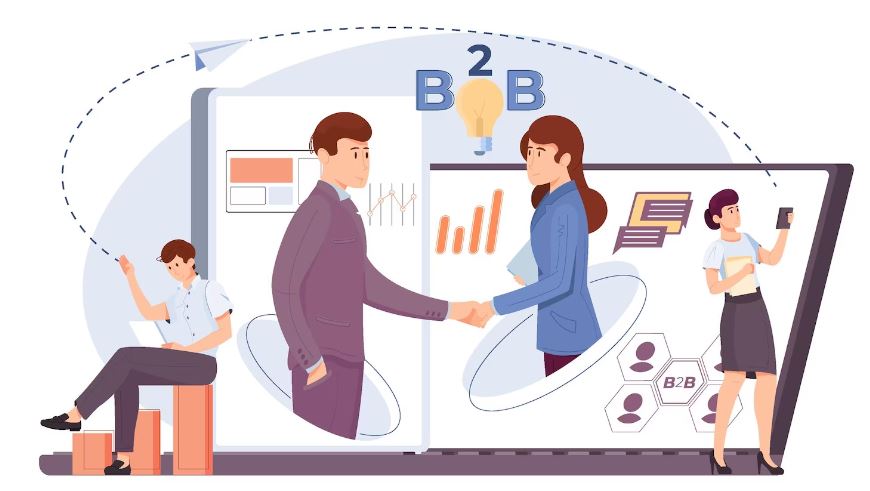When it comes to marketing, content holds huge importance in both the B2B and B2C industries, respectively. Today, businesses need to connect with their audiences on a personal level by creating content that resonates with their interests, needs, and aspirations and where they can connect emotionally. Let’s explore the significance of content marketing, the latest trends in B2B and B2C content marketing, and the differences between the two!
The Significance of Content, And What is Content?
Content is the core of effective marketing campaigns and brand engagement. It serves as a powerful tool to educate, engage, and inspire audiences through social media platforms or any other medium! Whether you’re targeting businesses or consumers, compelling content can influence decision-making, drive desired actions, provide value, establish thought leadership, and foster trust and loyalty among your target audience.
What are the latest B2B Content Marketing trends?
While the overall market will grow in 2023, the rate of growth is expected to slow. Through a survey, we discovered that The majority of the growth will come from B2B brands. B2B marketers are expecting to increase their digital marketing spend by 11–12%, compared to about 7% for B2C marketers. Overall marketing spending will increase significantly more for B2B marketers compared to B2C marketers.
Here are the top B2B content marketing trends for 2023:
1. Podcasting: Podcasts continue to gain popularity in B2B marketing, allowing companies to engage with their audience through insightful conversations and share complex information in an accessible way.
2. Concise Content: To cater to shrinking attention spans, it’s important to keep content concise and easily digestible. Breaking down information into smaller sections helps readers absorb the content more effectively.
3. Content for Virtual Events: With the shift to virtual events, content marketers should focus on creating engaging content for these occasions, such as live polling, quizzes, and interactive formats, to maintain audience interaction.
4. Interactive Content: Interactive content like quizzes, assessments, and polls is gaining traction in B2B marketing as it enables audience participation and provides personalized insights, fostering trust and authority.
5. Account-Based Marketing: Account-based marketing allows companies to target specific accounts and tailor content and messaging to their individual needs, resulting in higher conversion rates and a more personalized experience.
6. Sustainability: Incorporating sustainability messaging into content marketing efforts is essential as more consumers prioritize environmental and social issues. Highlighting sustainable practices, sharing case studies, and providing insights on sustainability help build stronger connections with the target audience.
Now, let’s have a look at B2C marketing:
What is b2c Marketing?
Business-to-consumer marketing, or B2C marketing, refers to the tactics and strategies in which a company promotes its products and services to individual people — creating, advertising, and selling products for customers to use in their everyday lives.
What are the B2C Content Marketing Trends for 2023?
7. Authentic Storytelling: Consumers crave authentic and relatable brand stories. Crafting narratives that evoke emotions and resonate with their values helps establish an emotional connection.
8. User-generated Content (UGC): Encouraging customers to create content about your brand fosters engagement, builds trust, and amplifies your reach. UGC can be in the form of reviews, testimonials, or social media content.
9. Influencer Partnerships: Collaborating with influencers who align with your brand values can expand your reach and create authentic connections with your target audience.
10. Social Media Engagement: B2C brands thrive on social media platforms. Engaging with consumers, leveraging trending hashtags, and creating shareable content help drive brand awareness and loyalty.
B2B vs. B2C Trends in 2023:
While there are differences between B2B and B2C content marketing, the core principles remain the same: understanding your audience, delivering valuable content, and building meaningful connections. B2B marketing tends to focus on expertise and industry-specific knowledge, while B2C marketing is more driven by emotional storytelling and engaging experiences. By acknowledging these differences and adapting your content strategy accordingly, you can effectively reach and engage your target audience.
Content marketing drives successful B2B and B2C marketing strategies by embracing trends and understanding market characteristics. Circle 360 Brand Solutions helps businesses create compelling content, build trust, and optimize for customer engagement. Contact us today and invest in content creation, delivery, and optimization to connect your brand with customers and thrive in today’s marketing landscape.
